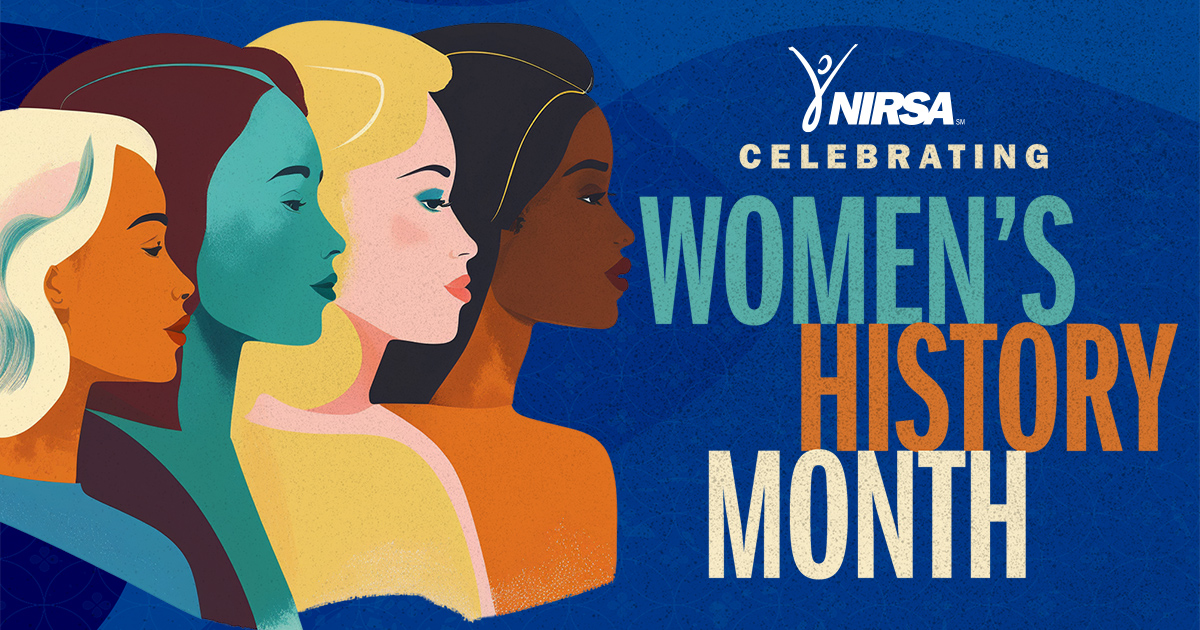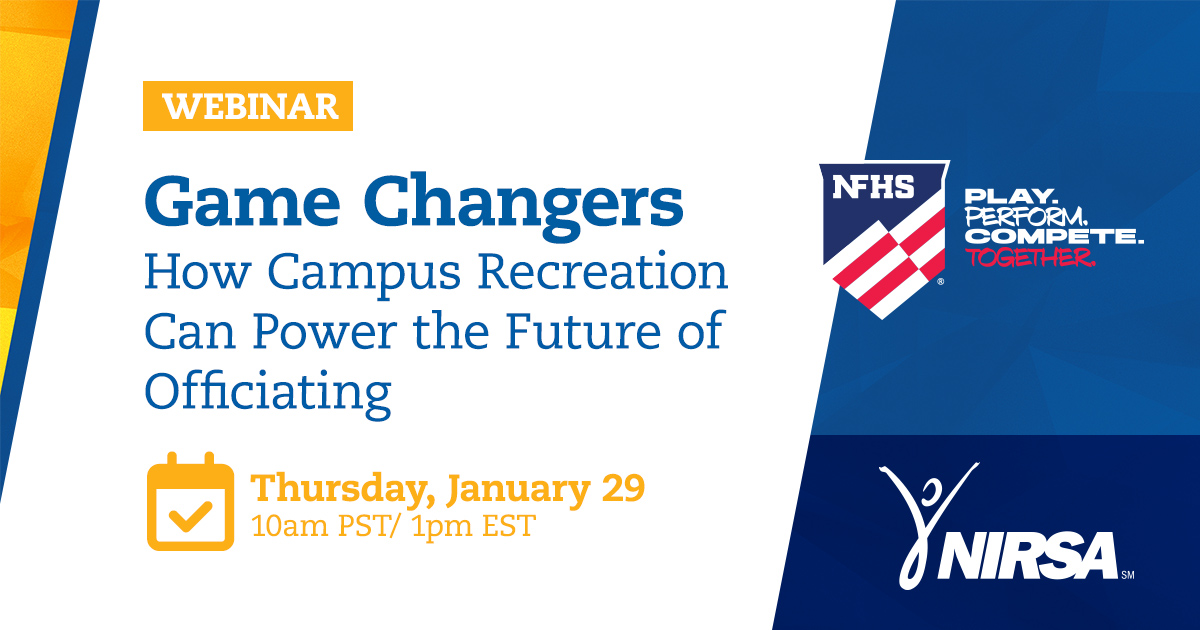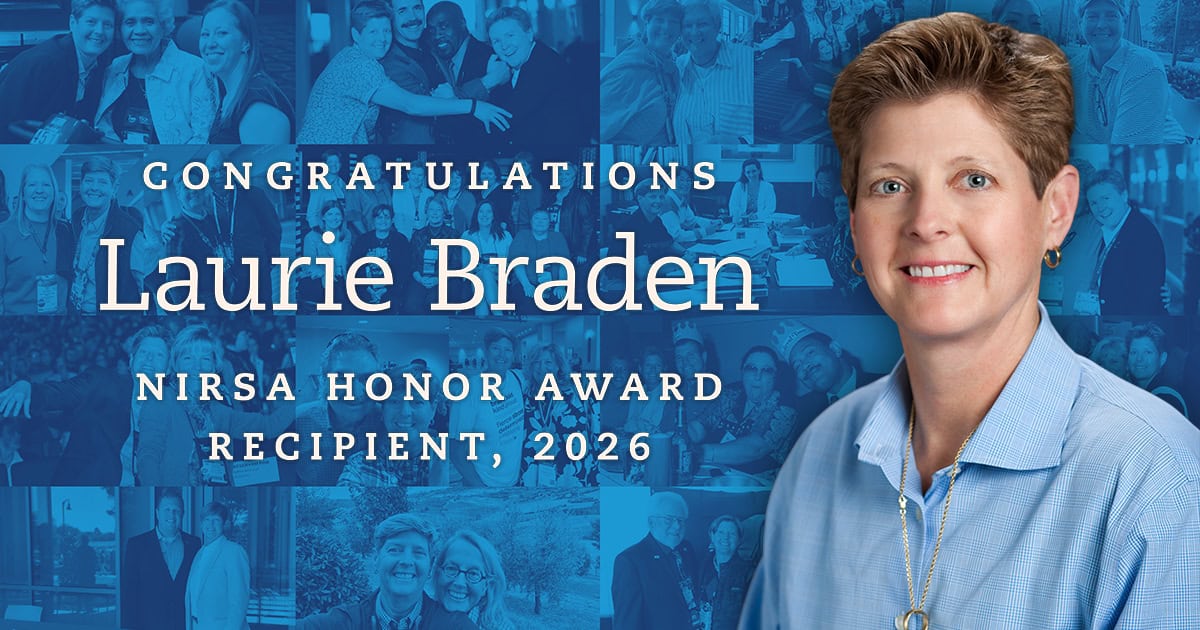Filters
Search
Topic
Professional Area
Article Type
-

Celebrate Women’s History Month
-

Sponsored
Key takeaways from recent webinar on officiating
-

NIRSA insights with President Lashica Thomas – three in one
-

Laurie Braden is named as the 2026 NIRSA Honor Award recipient
-

NIRSA’s new adventure: Flag football leagues
-

Heart of the Series: Bringing the Game Home
